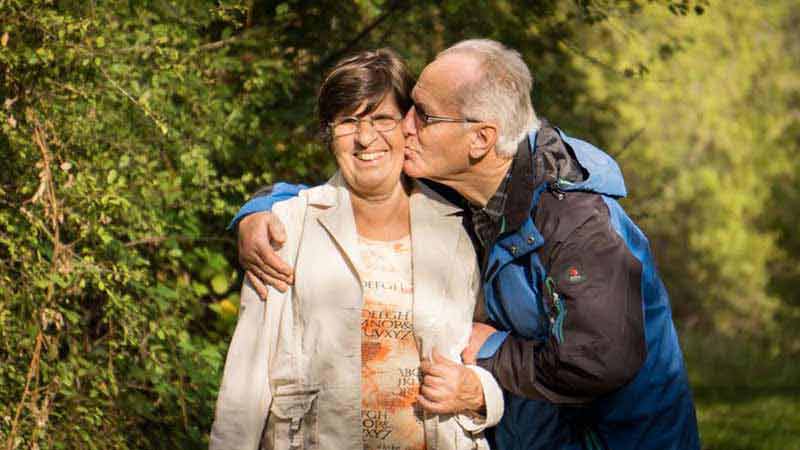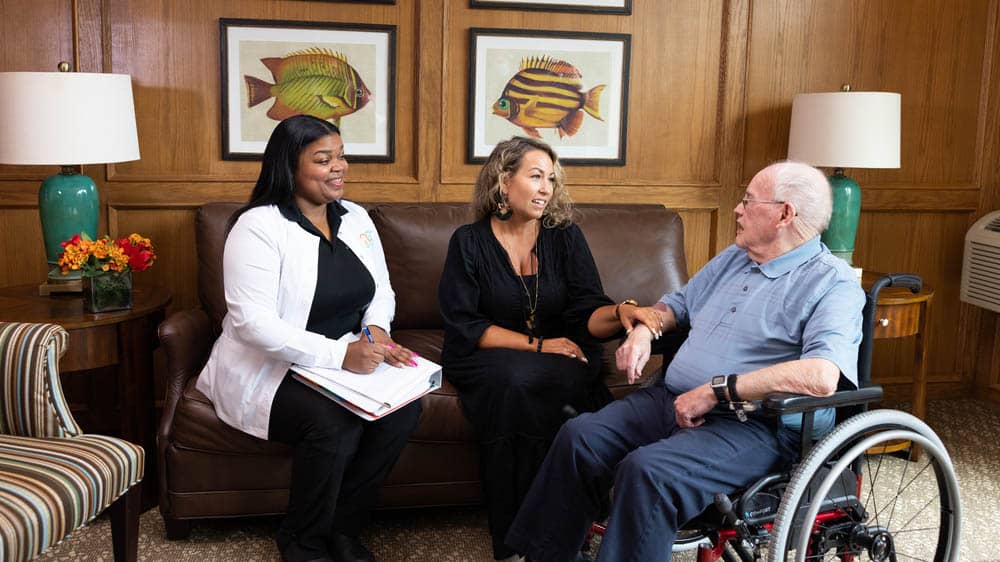

Parkinson’s Care Tips for Family Caregivers
Parkinson’s disease is a neurodegenerative disorder that progresses over time and affects a person’s movement, balance and muscle flexibility. Currently, about 1 million people in the United States and 10 million worldwide are known to have Parkinson’s. The complex disease also poses a number of challenges for a patient’s family or informal caregivers, including feelings of being overwhelmed, socially isolated, anxious, depressed and fearful about care needs and the disease’s progression.
The following tips for Parkinson’s family caregivers can help restore equilibrium in their own lives and in daily caregiving routines:
- Acknowledge your conflicted feelings. Feeling sad or incapable at times is OK. When intense emotions build, it’s important to take a breather and bring things back into the present moment.
- Know your limits. Allow yourself to be human and realize that you will not always deliver perfect care. Some days will feel a bit more off-balance. Be realistic on what you can and cannot do in your caregiving role.
- Build in leisure time and playtime. Being intentional about respite care is important for the long-term success in caring for a loved one with Parkinson’s disease. Do not neglect downtime and opportunities to socialize with others. The practice of deep breathing and mindfulness is another solution in quieting a stressed brain and body.
- Foster a team of support and community. Recognize your need for help and accept help regularly. Show your vulnerability and ask for assistance with the more challenging responsibilities. Lean on other family members and caring friends and neighbors. As Parkinson’s advances, in-home professional care and assistance can ease the family’s care load by helping to prevent falls, assisting with bathing and dressing, and overseeing nutritional intake. A strong caregiving team can help a person living with Parkinson’s remain safely at home longer and with a greater quality of life.
- Guard your own health. Family caregivers are at greater risk for elevated blood pressure, higher insulin levels and cardiovascular disease. Stress levels often rise with the day-to-day demands of caregiving. It is imperative that you maintain your own physical checkups and health maintenance goals.
Find a Local Parkinson's Branch or Support Group
Support groups and online forums for both patients living with Parkinson’s and their family caregivers are effective avenues for walking through the ups and downs of the disease with others. To find a support group that best fits your preferences, check with your neurologist or treating physician, local hospitals, and chapter-based Parkinson’s programs. Parkinson’s disease organizations like the Parkinson’s Foundation make life better for people with Parkinson’s by improving care and advancing research toward a cure.
Parkinson’s Foundation Hosts Moving Day to Raise Awareness and Money
To help raise awareness and funds to beat Parkinson’s disease, the Parkinson’s Foundation hosts Moving Day events across the country. Moving Day is a national grassroots event that celebrates movement. Every event features a walk and Movement Pavilion with yoga, Tai Chi and non-contact boxing—all exercises that help manage Parkinson’s symptoms. Since 2011, Moving Day has united more than 115,000 people in the fight against Parkinson’s. The Foundation will host 39 walks in its 2018 season.
Right at Home, a leading provider of in-home care and assistance for seniors and adults with disabilities, is an originating National Hope Partner of Moving Day. “Right at Home supported us when Moving Day was launched, and they’ve grown in partnership with us over the years, allowing the Foundation to reach and help even more people in the Parkinson’s community,” explains Kayln Henkel, Vice President for Field Development for the Parkinson’s Foundation.
People with Parkinson’s, caregivers, families, community members and sponsoring companies are encouraged to participate in Moving Day. They can stretch, walk, dance and unite on behalf of those living with Parkinson’s. To find your nearest Moving Day or organize a walk team, visit MovingDayWalk.org.
“In addition to the vital research we are doing, one of the best strengths of the Parkinson’s Foundation is our incredible resources that make life better for people with Parkinson’s,” Henkel said. “All our resources are free because we fundraise to make sure they are available for anyone who needs them.”
Parkinson’s Foundation resources include educational books, fact sheets, a podcast and a website, Parkinson.org, which includes the latest information on living with Parkinson’s disease, causes and statistics, symptoms, diagnosis, treatment, expert care, and research. Visit Parkinson.org or call the toll-free Parkinson’s Foundation Helpline at 1-800-4PD-INFO (1-800-473-4636) to learn more.
How has Parkinson’s disease affected a loved one or community member you know?







